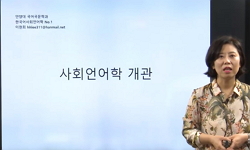Objectives: The association between educational status and 10-year risk for acute coronary syndrome (ACS) and all-cause mortality was evaluated. Methods: From October 2003 to September 2004, 2172 consecutive ACS patients from six Greek hospitals were ...
http://chineseinput.net/에서 pinyin(병음)방식으로 중국어를 변환할 수 있습니다.
변환된 중국어를 복사하여 사용하시면 됩니다.
- 中文 을 입력하시려면 zhongwen을 입력하시고 space를누르시면됩니다.
- 北京 을 입력하시려면 beijing을 입력하시고 space를 누르시면 됩니다.


The Impact of Educational Status on 10-Year (2004-2014) Cardiovascular Disease Prognosis and All-cause Mortality Among Acute Coronary Syndrome Patients in the Greek Acute Coronary Syndrome (GREECS) Longitudinal Study
한글로보기https://www.riss.kr/link?id=A102492276
- 저자
- 발행기관
- 학술지명
- 권호사항
-
발행연도
2016
-
작성언어
English
- 주제어
-
등재정보
SCOPUS,KCI등재
-
자료형태
학술저널
- 발행기관 URL
-
수록면
220-229(10쪽)
- 제공처
-
0
상세조회 -
0
다운로드
부가정보
다국어 초록 (Multilingual Abstract)
Objectives: The association between educational status and 10-year risk for acute coronary syndrome (ACS) and all-cause mortality was evaluated. Methods: From October 2003 to September 2004, 2172 consecutive ACS patients from six Greek hospitals were enrolled. In 2013 to 2014, a 10-year follow-up (2004-2014) assessment was performed for 1918 participants (participation rate, 88%). Each patient's educational status was classified as low (<9 years of school), intermediate (9 to 14 years), or high (>14 years). Results: Overall all-cause mortality was almost twofold higher in the low-education group than in the intermediate-education and high-education groups (40% vs. 22% and 19%, respectively, p<0.001). Additionally, 10-year recurrent ACS events (fatal and non-fatal) were more common in the low-education group than in the intermediate-education and high-education groups (42% vs. 30% and 35%, p<0.001), and no interactions between sex and education on the investigated outcomes were observed. Moreover, patients in the high-education group were more physically active, had a better financial status, and were less likely to have hypertension, diabetes, or ACS than the participants with the least education (p<0.001); however, when those characteristics and lifestyle habits were accounted for, no moderating effects regarding the relationship of educational status with all-cause mortality and ACS events were observed. Conclusions: A U-shaped association may be proposed for the relationship between ACS prognosis and educational status, with participants in the low-education and high-education groups being negatively affected by other factors (e.g., job stress, depression, or loneliness). Public health policies should be aimed at specific social groups to reduce the overall burden of cardiovascular disease morbidity.
동일학술지(권/호) 다른 논문
-
A Systematic Review of the Economic Evaluation of Telemedicine in Japan
- The Korean Society for Preventive Medicine
- Akiyama, Miki
- 2016
- SCOPUS,KCI등재
-
Helicobacter pylori Infection and Risk of Gastric Cancer in Korea: A Quantitative Systematic Review
- The Korean Society for Preventive Medicine
- Bae, Jong-Myon
- 2016
- SCOPUS,KCI등재
-
- The Korean Society for Preventive Medicine
- Lim, Hyungryul
- 2016
- SCOPUS,KCI등재
-
- The Korean Society for Preventive Medicine
- Kim, Agnus M.
- 2016
- SCOPUS,KCI등재





 ScienceON
ScienceON



